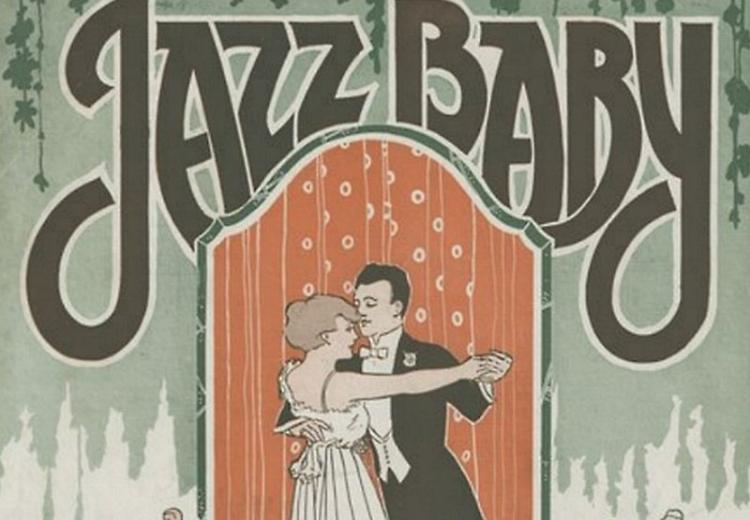The 'Secret Society' and Fitzgerald's The Great Gatsby

"Jazz Baby," 1919. From Historic American Sheet Music, 1850–1920.
"That was always my experience—a poor boy in a rich town; a poor boy in a rich boy's school; a poor boy in a rich man's club at Princeton.... However, I have never been able to forgive the rich for being rich, and it has colored my entire life and works."
—F. Scott Fitzgerald: A Life in Letters, ed. Matthew J. Bruccoli. New York: Scribners, 1994. pg. 352.
The high school social scene is rife with drama. Who's out? Who's in? What's cool? What's not? Behind many of the questions is a burning desire to belong. To assert their status in a crowd, students must learn the unwritten and unspoken codes of behavior. Students' own experience of the struggle to belong can provide a starting point for an exploration of how concerns about wealth, race, geographical origins, and other factors affect the perception of social status in F. Scott Fitzgerald's The Great Gatsby.
In Fitzgerald's novel, "class struggle" in America is portrayed as an intensely personal affair, as much a tension within the mind of a single character as a conflict between characters. During his evening at the Buchanans', Nick Carraway says Daisy "looked at [him] with an absolute smirk on her lovely face as if she had asserted her membership in a rather distinguished secret society to which she and Tom belonged" (p. 22 in the Scribners paperback edition). Nick, a transplanted midwesterner uneasy in the East, is anxious to belong yet sensitive to the subtle snub; his mixed emotions are suggested here in the juxtaposition of "lovely" and "smirk" in his description of Daisy. Through a close study of the text of The Great Gatsby, an examination of Fitzgerald's letters and other statements, and a consideration of class, wealth, and status during the turbulent 1920s, students will explore the nature of the "secret society" implied in Daisy's knowing smirk.
Guiding Questions
What tensions about wealth and status are revealed in The Great Gatsby?
How are these tensions reflected in Nick Carraway's struggle to belong?
Learning Objectives
Engage in critical textual analysis of the novel
Compare and contrast the process of film adaptation and how it effects thematic storytelling.
Apply thematic elements of the novel to relevant social issues.
